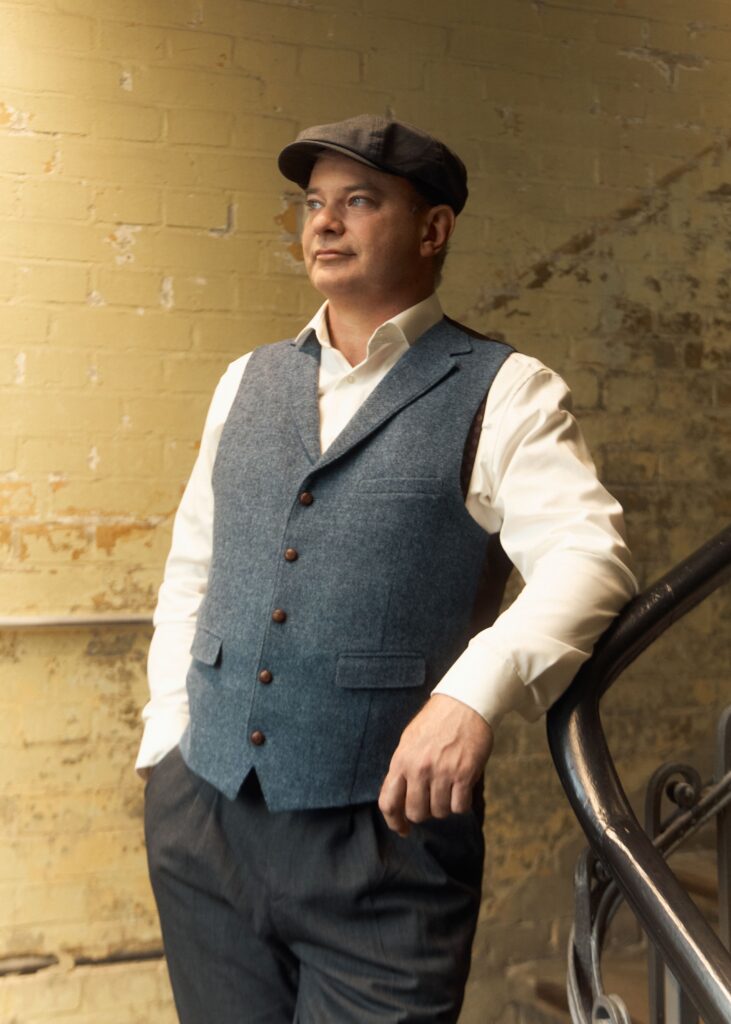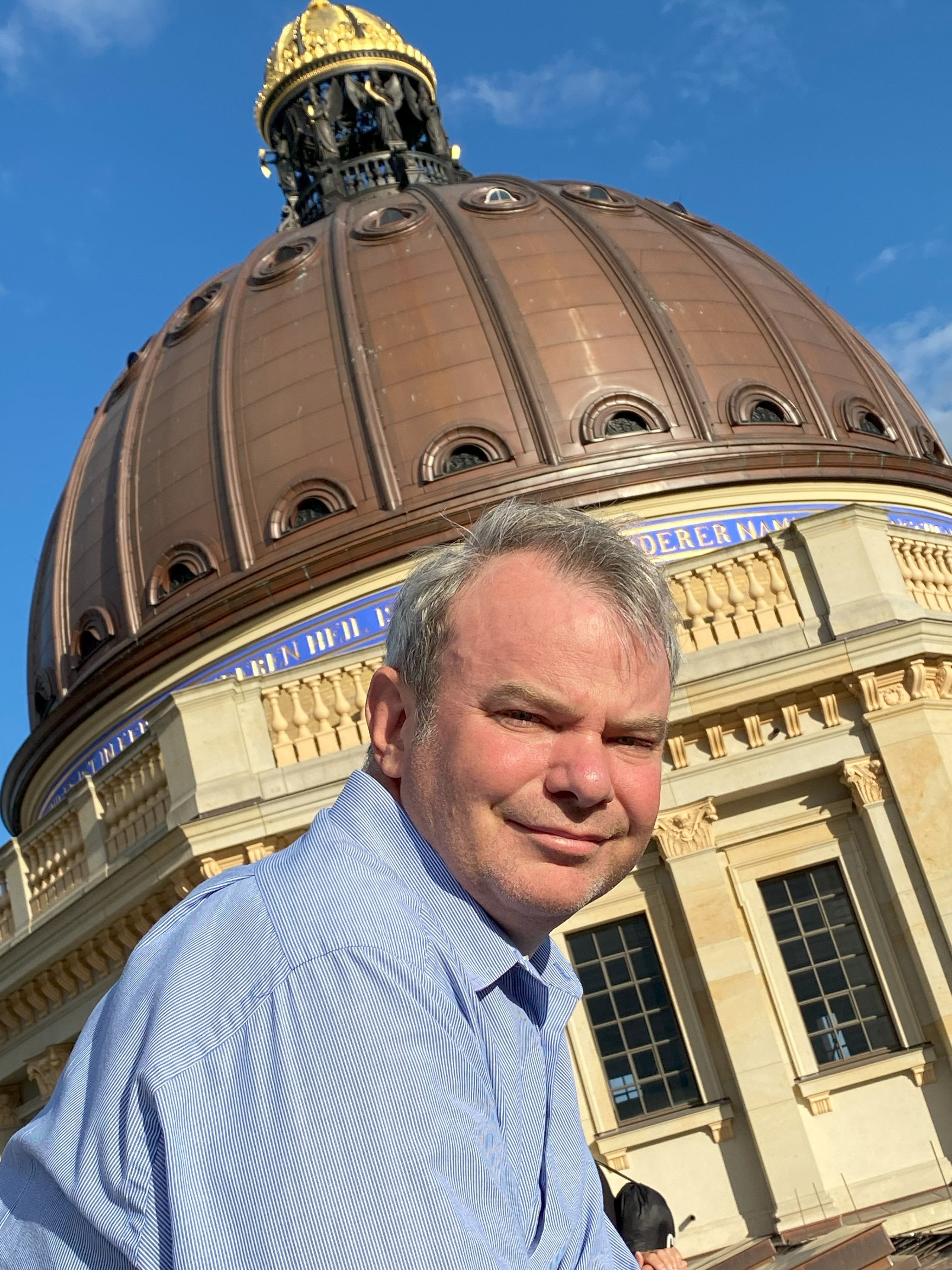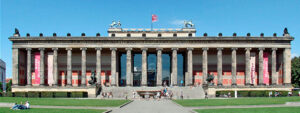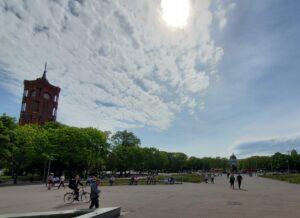People tend to find people interesting, and in that spirit some of you might be interested in learning more about me, the dear author of these posts. How, after all, did a kid with no particular advantages from a typical Chicago neighborhood end up working as a historian in Berlin?

Horizons always gripped my imagination. I don’t know when it happened, but it was very early in life when I realized there was more to the world than my parent’s house and the local neighborhood park. We used to take annual family road trips, and watching the world unfold mile after mile, seeing the changes in weather, in architecture and even in attitudes was something I couldn’t get enough of, even if I was too young to understand or articulate my interest in it.
Travel, I learned early in life, was a way to explore the world if you were open to it. Later in life, it become a pillar of my life as a historian that if you want to understand something, you have to walk the ground. There’s no substitute for going, seeing, experiencing and understanding first hand.
Books were the other cornerstone of my early life. Again, this wasn’t by design so much as pure chance. I learned, around the time we started making those yearly road trips, that horizons could be both geographical as well as temporal. Books, stories, and pictures opened up the world of the past, a place where people like us lived extraordinarily different lives, yet also lives that were in many ways hauntingly similar. Standing on Bunker Hill in Boston in 1984 as an impressionable kid, I realized that being a British redcoat assaulting a rebel fort, firing flintlock muskets was something that was utterly outside any frame of reference I had in my own life. Yet the emotions those men felt were things I could relate to. Fear, bravery, cowardice and determination all marked episodes of my own life.
This «familiarity swirling around the alien» hooked me on history for life, and I eventually received a BA and an MA in history.
But academic achievement was far from my mind when I was young. I grew up in a neighborhood not known for being a bastion of intellectualism, let’s put it that way. When I was a kid, we played World War Two games on the street, as sort of Cowboys and Indians, updated. The Germans, in our young minds, were both the bad guys and were all Nazis. The word German in our mind was simply another way of saying Nazi, and Nazi was another way of saying zombie-like bad guy. We were kids, but these were the impressions that were somehow or other ingrained in us.
Needless to say, as I grew older these ridiculous notions fell by the wayside, replaced by actual learning and understanding. Yet on my first trip to Germany, in the autumn of 1992, I remember experiencing something that jolted me. A group of us travelled from Rome where we were studying ancient history, and went for no particular reason to Mainz on the Rhine River. None of us heard of the place, and we went because somebody’s guidebook said the cruise from there to Koblenz was a great European experience and we were eager for a break from the hot Mediterranean sun.
I remember getting off the train and walking around a misty Mainz in the early stillness of an autumn morning. It was a beautiful town and as we made our way to the river, we stopped to buy a breakfast sausage. Standing there overlooking the river, an unbidden thought wandered casually into my head. «huh,» I remember thinking,» I guess they’re not Nazis after all. They look friendly enough.»
As soon as I clocked this thought coming into my mind, I realised the power of early programming and early impressions. Even after they’ve been banished by education and adulthood, we still find these odd old childhood impressions surfacing in unexpected ways.
I decided around then to keep exploring places that I was told in my younger days were bad, or alien or threatening. Germany was of course long an ally, and provided a soft introduction. Later in life I went on to explore Iran, Syria, Cambodia, Vietnam, and Russia. I learned the value of challenging those early narratives and it provided me with one of the threads of my life.
I eventually ended up in Berlin in 2017 on a semi-permanent basis, as the city embodied the essence of what makes travel good. Its history is far from being sunny, and that’s what makes it compelling and why it’s probably the best place in Europe for learning and challenging old beliefs. I try to recreate in my seminars and tours something of what I experienced in my younger days. «So, there IS more to this than I thought!»
Those «a-ha» moments are thrilling and I love using the history, the cityscape and the stories of Berlin to shape people’s engagement with travel and history and how these can open eyes and hearts to new worlds and new horizons.
In that way, being in Berlin means, at least to me, a coming together of the strands of life. From obliterating dangerously simplistic «beliefs» to treasuring the experience of broadening the horizons both geographically and across eras, to reach out to people who lived dramatically different lives yet were so similar to us in fundamental ways, this is what Berlin at its best lets us all do.
My journey to discovering Berlin’s magic

The door to the sleeping compartment on the train from Krakow crashed open and a shouted voice barked out a warning. «Achtung! Berlin!» No sooner were the words launched at my travelling companion and me than the guard stalked off to repeat the procedure at the next room down the train car’s aisle. It was … Keep on reading



